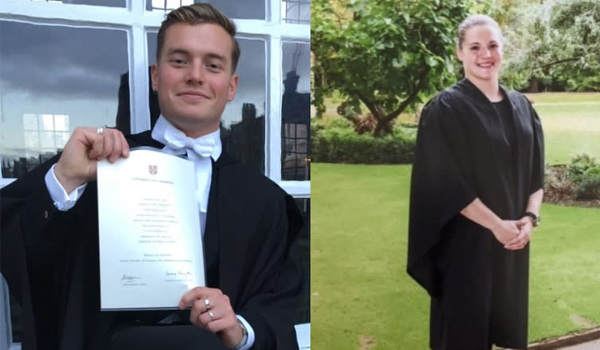Bravery and selflessness of first responders praised as lessons highlighted from Manchester bombing
Acts of courage running into the “hundreds, if not thousands” have been commended as a panel highlighted the learning from the deadliest UK terror attack since the 7/7 bombings.
An independent review led by Lord Robert Kerslake has praised the “overwhelmingly positive” emergency service response to last year’s Manchester Arena bombing which claimed the life of an off-duty police officer.
Its report, published on Tuesday (March 27), found officers were on the scene within minutes, putting their own safety at risk to protect victims of the blast.
Greater Manchester Police (GMP) responders also showed “sound judgment”, with decisions such as the one to establish the casualty clearing station on the nearby train station concourse.
However, Lord Kerslake criticised the force’s failure to hold strategic meetings until nearly six hours after the bomb detonated.
He also found the fire service arrived to the scene two hours late, and accused it of letting down the people of Manchester.
Lord Kerslake said: “The Manchester Arena attack was devastating for many thousands of people. We must think first and always of the families of those who have been bereaved, those injured, and all those affected by this act of terror. We have ensured that their views have been front and centre throughout this process.
“There is a lot to be proud of in the response to the attack, both for the city region of Greater Manchester, and for the emergency services. The benefits of collaborative working and planning for emergencies were demonstrated to the full. And there were hundreds, if not thousands, of individual acts of bravery and selflessness.
“But it’s also vital to learn the lessons around things that did not go so well. It matters not just for the people of Greater Manchester and beyond who were caught up in the terrible events of that night, but also for places that might be caught up in such an attack in the future.”
Suicide bomber Salman Abedi detonated a nail-filled explosive just outside the Manchester Arena at around 10.30pm on May 22, 2017, as a concert by pop singer Ariana Grande came to an end.
Twenty-two people died in the blast, including Cheshire Constabulary Detective Constable Elaine McIver, and more than 100 were physically injured.
A multi-agency operation was launched to evacuate the injured while armed officers worked to ensure safety across the city.
The Kerslake review was commissioned by Greater Manchester Mayor Andy Burnham to ensure lessons could be identified and shared from the city’s response.
The report praised the speed of arrival of police and ambulance service staff, with the first British Transport Police officers on the scene just minutes after the bomb detonated.
Meanwhile, GMP’s officers carried out a “painstaking” forensic search, and collaboration with those responsible for recovering bodies allowed victim identification to be carried out as fast as possible.
The Force Duty Officer, who acts as the main point of contact in the initial stages of a major incident, was relocated to work in the GMP headquarters, which simplified communication on the night.
However, the panel found the first meeting of the Strategic Coordinating (Gold) Group to bring together strategic leads for first responders should have been held earlier than at 4.15 am – almost six hours after the blast.
There was also no shared communication between agencies on the declaration of Operation PLATO, the agreed operational response to a suspected Marauding Terrorist Firearms Attack.
Although decisions were made that ensured the response remained effective, the panel claimed PLATO principles should be reviewed to ensure effective communication in any future incidents.
It also recommended that agencies across the region should explore using encrypted social media to improve their internal emergency activation arrangements, and that single officers should not be required to manage multiple strategic responsibilities at once during a major incident.
Ian Hanson, chair of GMP Federation, accepted the report’s findings but claimed that officers did the best they could in “unprecedented” circumstances.
“This was an unprecedented attack the like of which our city had never seen before and no matter how much we try to train our people we can never be fully prepared for what we faced that night,” he added.
“We saw incredible bravery, with officers running towards the danger to help victims in the full knowledge that there was a likelihood of a secondary device and also against the backdrop of what turned out to be inaccurate reports of gunshots.
“We saw the very best of Greater Manchester Police – and our other emergency service colleagues – and that needs to be highlighted and recognised, rather than forensically picking it apart with the benefit of hindsight.”







